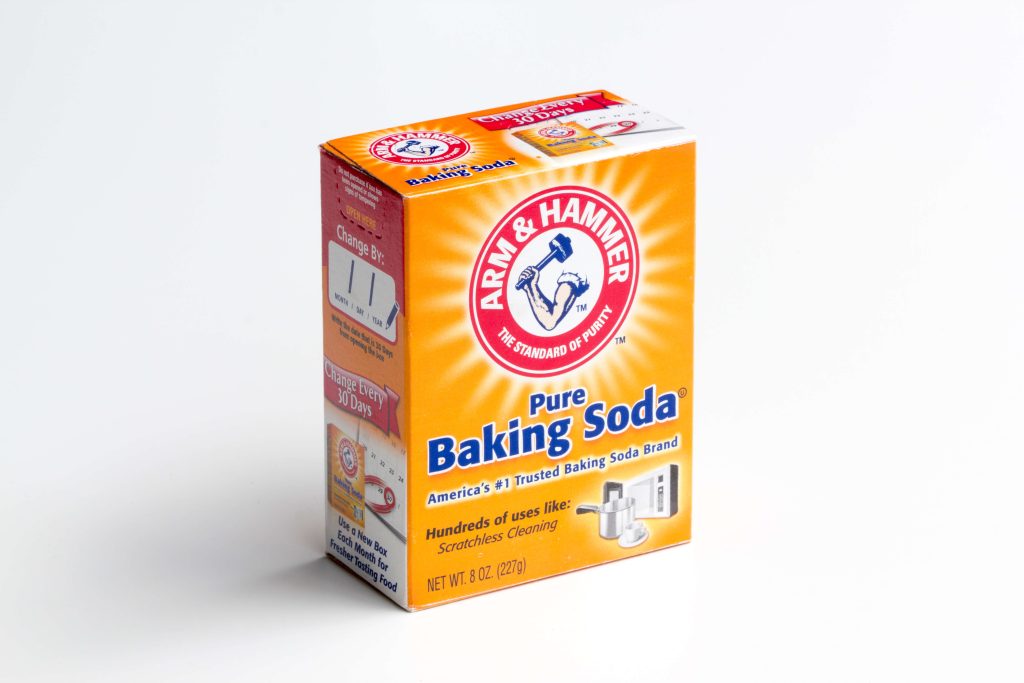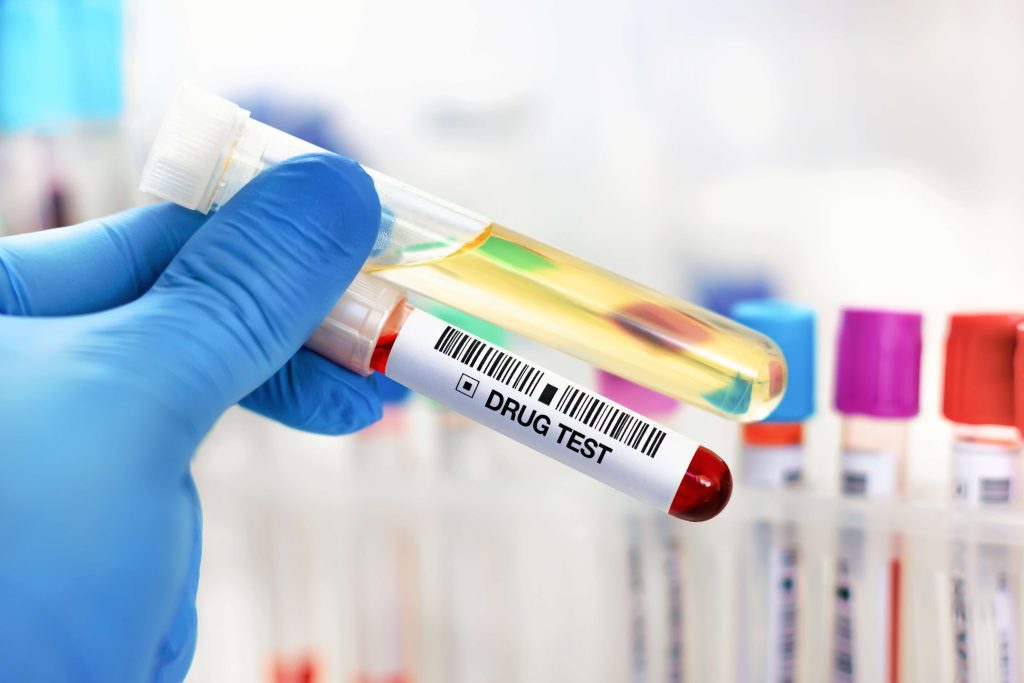Baking Soda To Pass Drug Test: Fact Or Fiction?
In the world of drug testing, myths and rumors often circulate about ways to cheat or manipulate test results. One such method that has gained attention in recent years is the use of baking soda (sodium bicarbonate) to pass a drug test. Proponents claim that consuming baking soda can alter the pH of urine, making it possible to produce negative drug test results, even after recent drug use. However, as with many purported solutions in this realm, it’s crucial to separate fact from fiction, understand the science behind it, and consider the potential risks and limitations of this approach.


The Baking Soda Method: How It Supposedly Works
Vinegar. Lemon juice. Salt. Baking soda… At least one of these items is probably in your kitchen. And any of them can be used to beat a drug test. People have been using a long list of very ordinary household items to confuse drug labs, hoping to catch them in the act of using or abusing illegal drugs.
Does it work? Yes, it does, but chances are meager that you will be able to beat the morden drug testing system. Many household items change urine’s pH, or acidity when they’re added to it; most of the time, that renders a sample useless for testing. Labs can quickly tell when urine has been adulterated with household items. Usually, they disqualify the applicant without even bothering to test for specific drugs.
Advocates of the baking soda method argue that by consuming baking soda in various ways, such as mixing it with water, can help alter the pH balance of the urine. The idea is that changing the urine’s pH will make it more acidic, which, in turn, could render drug metabolites undetectable by standard drug tests.
The theory is based on the understanding that certain drug metabolites, particularly those from amphetamines and methamphetamines, are excreted in their ionized form, which is more water-soluble and easier to eliminate from the body. In theory, making the urine more acidic could increase the ionization of these metabolites, allowing them to be excreted more efficiently.


What Is the Baking Soda Flush?
Baking soda flush is a process where people take baking soda to try and pass a drug test. Nowadays, baking soda flush only works for specific criteria like the methamphetamine test. If your residence or work area allows a detox method, follow the box’s instructions. In case you know you have an upcoming drug test, please ensure you avoid taking amphetamines, or any other drugs for that matter.
The Reality: Limited Effectiveness and Risks
While the concept behind the baking soda method seems plausible on the surface, several factors cast doubt on its effectiveness and raise concerns:
1. Limited Scientific Evidence
One of the most significant challenges with the baking soda method is the lack of scientific studies and credible research supporting its claims. The available evidence is primarily anecdotal, with few, if any, controlled experiments or clinical trials to validate the method’s reliability.
2. Potential Health Risks
Consuming large amounts of baking soda can have adverse health effects. Baking soda is an alkaline substance, and excessive ingestion can lead to electrolyte imbalances, dehydration, and digestion. If a person has taken a large amount of baking soda and is experiencing any poisoning symptoms, someone needs to call Poison Control at 800-222-1222. It is not advisable to ingest baking soda in excessive quantities without medical supervision.
3. Variable Results
Even if baking soda temporarily alters urine pH, it may not be consistent or reliable in masking drug metabolites. The effectiveness of this method can vary significantly depending on factors like an individual’s metabolism, the specific drug used, the type of drug test employed, and the timing of the test relative to drug use.
4. Detection Methods
Modern drug testing methods have advanced considerably to detect and prevent attempts to manipulate results. Laboratories and testing facilities are well-aware of common adulteration methods, including alterations in urine pH. As a result, they have implemented measures to identify and flag samples that exhibit unusual pH levels or other signs of tampering.
5. Legal Consequences
Attempting to manipulate drug test results through methods like the baking soda approach can have legal consequences. Employers, probation officers, or authorities may view such actions as a breach of trust and may take appropriate actions, including potential legal penalties.


It’s Hard to Beat a Drug Test
Even though many people think it’s super easy to get away with faking a urine drug test, it’s a lot harder than you may think. It’s getting more complicated. Laboratories and drug testing facilities are well aware of various methods people may attempt to use to cheat or adulterate their drug tests, including the use of baking soda. To prevent cheating and maintain the integrity of drug testing results, laboratories employ several measures and techniques:
- Testing for Creatinine Levels: Creatinine is a waste product produced by muscle metabolism and is typically found in urine. Laboratories test for creatinine levels to ensure the sample is not diluted or tampered with by excessive water consumption. If creatinine levels are abnormally low, it may raise suspicion.
- Specific Gravity Testing: Specific gravity measures the concentration of solutes in urine. Diluted urine often has a lower specific gravity. Laboratories may test urine samples for specific gravity to identify samples that have been excessively diluted.
- pH Testing: Laboratories may measure the pH of urine as part of the initial screening process. An abnormally high or low pH level may indicate possible tampering with the sample’s acidity.
- Temperature Monitoring: Drug testing facilities require urine samples to be provided at a specific temperature range (usually around 90-100°F or 32-38°C) to ensure the sample is fresh and has not been substituted or tampered with. Urine samples outside this temperature range may be flagged.
- Creatinine to Specific Gravity Ratio: Laboratories may calculate the ratio of creatinine to specific gravity. An abnormal ratio could indicate sample tampering, especially if both creatinine and specific gravity levels appear manipulated.
- Adulterant Tests: Drug testing laboratories often use adulterant tests to detect the presence of common adulterants or substances that individuals may add to their urine to mask drug use. These tests can identify the presence of chemicals like bleach, hydrogen peroxide, or other adulterants that may be used to alter the sample.
- Advanced Drug Testing Methods: Laboratories use advanced drug testing methods, such as gas chromatography-mass spectrometry (GC-MS) and liquid chromatography-mass spectrometry (LC-MS), which can accurately identify and quantify specific drugs and their metabolites. These methods are highly sensitive and can detect even trace amounts of substances.
- Strict Chain of Custody: Drug testing facilities maintain a strict chain of custody for urine samples to prevent tampering during transportation and processing. Any breach in the chain of custody could invalidate the sample.
- Witnessed Collections: In certain situations, particularly for court-ordered or high-stakes drug tests, samples may be collected under direct observation to prevent substitution or adulteration attempts.
- Random Testing: Random drug testing may be conducted, making it difficult for individuals to prepare or manipulate their samples in advance.


Conclusion
In conclusion, while the concept of using baking soda to pass a drug test may seem appealing to some, the evidence supporting its effectiveness is largely anecdotal, and it carries potential health risks. Moreover, drug testing procedures and technology have evolved to detect and prevent such manipulation attempts.
The most reliable way to pass a drug test is to abstain from drug use and allow the body’s natural detoxification process to eliminate drug metabolites over time. If you have concerns about passing a drug test, it’s advisable to seek guidance from healthcare professionals or consider discussing your situation with the relevant authorities. Relying on unproven methods like the baking soda approach can lead to disappointing results, potential health issues, and legal consequences, making it a risky and ill-advised choice for individuals facing drug testing scenarios.






At LifeScape Recovery, we offer services to treat primarily mental health and simultaneously work on the client’s co-occurring disorders until the signs and symptoms of substance dependence are in remission. At LifeScape Recovery, we provide such services as individual therapy, group therapy, telehealth, case monitoring, solution-focused brief therapy, behavioral therapies, acceptance& commitment therapy, medication management & psychodynamic therapy.
Published: October 01, 2023
Last Updated: November 07, 2023


Published: April 08, 2024
Exploring the Impact of the Solar Eclipse on Mental Health
The solar eclipse, a celestial phenomenon that captivates humanity, transcends its mere astronomical significance to offer profound insights into our mental well-being. Beyond its visual splendor, this cosmic event invites introspection, reflection, and a deeper understanding of our inner selves, fostering a connection between the celestial and the psychological realms. Connecting with Nature’s Synchronicity The […]
Read more

Published: April 06, 2024
Understanding Autism Awareness Month: Fostering Inclusivity & Support
April stands as Autism Awareness Month, a dedicated period aimed at enhancing comprehension and acceptance of Autism Spectrum Disorder (ASD) while advocating for individuals living with autism. This observance serves as a pivotal opportunity to shed light on the intersectionality between autism and mental health, emphasizing the need for a supportive and inclusive environment conducive […]
Read more

Published: March 22, 2024
Why Do We Fear Therapy?
In a world where mental well-being is increasingly valued, the fear of therapy often acts as a barrier for individuals seeking help. At Lifescape Recovery, we recognize the importance of understanding and addressing this fear to pave the way for profound transformations. Join us as we delve into the reasons behind the apprehension surrounding therapy […]
Read more
